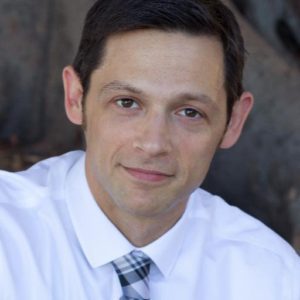In episode 197 of The OCD Stories podcast I chat with Jon Hershfield. Jon is a psychotherapist who specialises in the treatment of Obsessive Compulsive Disorder. He is the author four books about OCD.

In this episode I chat with Jon about what is existential themed OCD, common obsessions and compulsions, ERP for this theme, how families can support their loved one with OCD, and much much more. Hope it helps.
Listen on all podcast apps, and Spotify. Or listen direct on our website here
To listen on iTunes click the button, or go to iTunes and search “The OCD Stories“. If you enjoy the podcast please subscribe and leave a review. It helps us reach more people who need to hear these remarkable stories of recovery!
You can also listen on Android and over devices through most podcast apps, such as Stitcher.
Find out more about Jon:
Jon’s website: OCDBaltimore.com
Jon’s books
Resources:
The OCD Stories book >>
To your success,
Stuart
Get exclusive podcasts and content by becoming a member of the podcast find out more here >>

Thanks for this! Very interesting and helpful. I am a philosopher myself, with OCD. It is interesting to know that for me it is kind of easy to separate my willingly passion for philosophy (especially my passion to think about music) and my unwillingly urge of thinking about certain philosophical questions. Those two mental processes are totally different and this insight is kind of important to get to know what your compulsions are.
My harm/existential OCD started with some trigger/traumatic events in my younger life with people getting sick and dying, people in my close environment harming themselves (like auto-mutilation and self-destruct behavior) etc. It looks that my OCD was a kind of a coping strategy to deal with those traumatizing events. When I was studying philosophy, my OCD gave me an urge to think about questions related to those events, like things about life, death, meaning of life, reality and stuff (for example all those existential philosophers like Schopenhauer, Camus etc. were triggers for me). It seems that my OCD (I always call him Wilfried so I can laugh with him :)) was really focused on scrubbing the uncertainties clean that were related to those ‘themes’.
But the funny thing is that my goal to study philosophy and end this study was never related to those existential themes. From the beginning of my study I want (and I am happy I also attached my behavior to it) to focus on questions about music and art and I enjoyed thinking about them and wrote a lot of papers about this and I had the will to stop thinking about them too. And I still like to think about this area of philosophy (I even write books about it now!). Sometimes I wonder how my OCD would look like without studying philosophy… In a strange way the study helped me to accept uncertainties. For some people studying philosophy might be a compulsion but for me it was more a huge exposure to uncertainties that were related to ugly things happening in my life.
Greetings and love from Belgium.
Hi Tomas,
Thank you for sharing. Very insightful.
All the best!